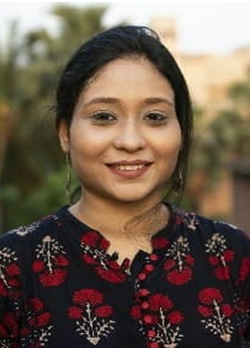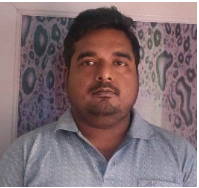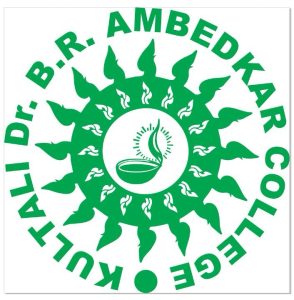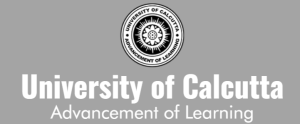Introduction of the Department at Kultali Dr. B. R. Ambedkar College
Since its inception in 2005, Kultali Dr. B. R. Ambedkar College has strived to provide higher education in the Sunderban region of West Bengal. Located in the densely populated Kultali area, the establishment of the college was a response to the urgent need for higher education institutions in a region served by seven feeder schools but lacking a college. The enthusiastic support of the local community, irrespective of caste, creed, or social status, played a pivotal role in the founding and subsequent development of this institution.
The Department of Political Science began its journey alongside the college in 2005, offering both General and Honours courses. As one of the most sought-after disciplines, the department has provided an intellectually stimulating and interactive environment for students. By focusing on the holistic development of learners, it has carved a niche for itself as an academic powerhouse within the college.
The Importance and Scope of Political Science
Political Science, often referred to as the “Master of All Sciences” by the Greeks, holds a revered place in academia and beyond. The subject delves into critical concepts such as the State, Human Rights, Citizenship, Nation, Liberalism, and Governance. These topics are not just theoretical—they form the backbone of contemporary debates in newspapers, magazines, and public discourse. In West Bengal, Political Science has gained immense popularity due to the dynamic course structure offered under the affiliation of the University of Calcutta.
Academic Framework
Initially following the Part-Based System, the Department transitioned to the Choice Based Credit System (CBCS) in the 2018–19 academic session, keeping pace with modern educational reforms. Presently, the department operates under two parallel frameworks: the CBCS and the National Education Policy (NEP) 2020. The NEP under University of Calcutta , introduces a four-year Curriculum Credit Framework alongside the three-year Multidisciplinary Course (MDC), offering flexibility and depth in learning. The curriculum emphasizes skill enhancement through activities like tutorial presentations, fostering critical thinking and a deep understanding of the subject matter.
Career Prospects
The study of Political Science extends far beyond academia. It equips students for a myriad of career paths, including civil services, state government roles, and staff selection commission exams. Additionally, graduates can pursue opportunities in media and journalism, non-governmental organizations, legislative research, content writing, and law firms. The discipline also opens doors to international organizations like the United Nations and philanthropic research bodies. With such diverse prospects, Political Science remains a highly relevant and practical field of study.
The Department of Political Science at Kultali Dr. B. R. Ambedkar College has been instrumental in shaping the academic and professional journeys of its students. By offering a robust curriculum and fostering a lively intellectual atmosphere, it continues to uphold the ideals of higher education in a region that once yearned for such opportunities. The department not only nurtures future scholars and professionals but also contributes to the socio-political awareness and development of the community at large.

Assistant Professor Stage I
View Profile
Assistant Professor Stage I
View Profile
Senior Faculty
View Profile
Faculty
View Profile

Courses presently being taught under the aegis of the Curriculum and Credit Framework (CCF) of the New Education Policy (NEP), introduced from the session 2023-24 are:
NEP CCF syllabus Courses presently being taught under the aegis of the Curriculum and Credit Framework (CCF) of the New Education Policy (NEP), introduced from the session 2023-24 are: NEP CCF syllabus
(Classes are taken in both English and vernacular languages. Students may write their exams also in either of the languages.)
Core/Minor Courses:
Political Theory: Foundational Concepts
Constitutional Government in India
Skill Enhancement Courses (SEC)
Democratic Awareness through Legal Literacy
Understanding the Legal System
Interdisciplinary Course (IDC)
Understanding Governance
Value-Added Course (VAC)
Constitutional Values and Fundamental Duties
(Classes are taken in both English and vernacular languages. Students may write their exams also in either of the languages.)
Additionally, the College Parallelly runs the B.A Program and the corresponding Courses presently being taught under the aegis of CBCS (Choice Based Credit System) Framework introduced by UGC (University Grant’s Commission) in 2018
3 Year (6 semester) B.A. (General) course (Classes are taken in both English and vernacular languages. Students may write their exams also in either of the languages.)
CBCS syllabus
Semester I
Core Course:
Introduction to Political Theory (Code: PLS-G-CC-1-1-TH+TU)
Semester II
Core Course:
Comparative Government and Politics (Code: PLS-G-CC-2-2-TH+TU)
Semester III
Core Course:
Government and Politics in India (Code: PLS-G-CC-3-3-TH+TU)
Skill Enhancement Course (SEC)
Legal Literacy (Code: PLS-G-SEC-3-A(1)-TH)
Semester IV
Core Course:
International Relations (Code: PLS-G-CC-4-4-TH+TU)
Skill Enhancement Course (SEC):
Elementary Dimensions of Research (Code: PLS-G-SEC-4-B(1)-TH)
Semester V
Discipline Specific Elective (DSE):
Indian Foreign Policy (Code: PLS-G-DSE-A-5-1B-TH+TU)
Semester VI
Discipline Specific Elective (DSE):
Human Rights: Theory and Indian Context (Code: PLS-G-DSE-B-6-2B-TH+TU)
Semester 1 (Honours)
Semester 2 (Honours)
SEM-2CC-3মুখ্যমন্ত্রীর ক্ষমতা ও পদমর্যাদা আলোচনা কর।
SEM-2CC-3 জাতীয় মানবাধিকার কমিশন
SEM-2CC-3 রাষ্ট্রপতির ক্ষমতা ও কার্যাবলি
SEM-2 CC-4 সুপ্রিমকোর্টর বিচারপতিদের নিয়োগ ও অপসারণ।
Semester 3 (Honours)
Semester 4 (Honours)
Semester 5 (Honours)
Semester 6 (Honours)
জন প্রশাসনের সংজ্ঞা, প্রকৃতি ও পরিধি
Semester 1 (General)
Semester 2 (General)
Semester 3 (General)
Semester 4 (General)
Semester 5 (General)
Semester 6 (General)